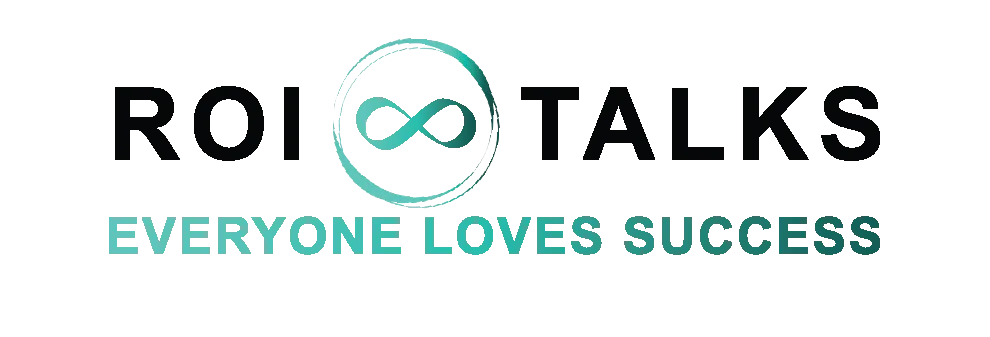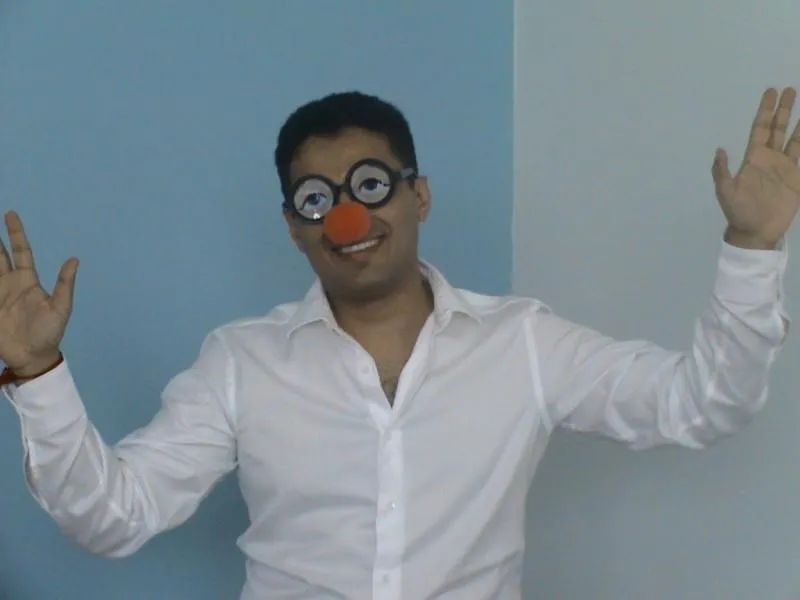
Everyone Loves Success
ROI TALKS
Roi Talks Blog

Trust Is Powerful And Dangerous!
Does trust matter? Has anyone broken your trust? How do you warn others about this? WARNING!!! the wicked ways of two-face is in your circle/network. Unfortunately, you will be unaware of such an individual’s deception. Under the false pretence of helping you or others, such a person continues to act dishonestly in order to attain selfish, scrupulous and devious gains. Yes, my trust has been broken by such a person.
One of the most valuable values that exist in every part of your life is trust. Trust is the cornerstone of all relationships. We all want to build trust with our clients, colleagues, business associates, friends and loved ones. Trust is a value to cherish and within a second it could be broken. Without trust, life and work can easily be miserable. You see trust is extremely powerful and dangerous.
"One of the most expensive attributes in the world is TRUST. Cheap, unwholesome and poor/poverty-minded people cannot fathom it and afford it." - Rohit Bassi
A simple definition of trust is the belief “that someone or something is reliable, good, honest, effective, etc.” Another definition that I read says “firm belief in the integrity, ability, or character of a person or thing; confidence or reliance.” Let me simplify it further. Trust means faith, hope, and confidence thus it is a powerful act, emotion and word.
What is the point if there is no trust in a relationship? This could be a relationship such as at work, friendship, family, government and love. The relationship is gone if there is no trust. Even though trust is important and extremely powerful, at the same time it can be considered to be dangerous. Trust allows you to form relationships with others be it at work, with service providers, business deals, your career, family and friends.
Trust is critical in the workplace, and it can have a significant impact on organizational performance. A survey by Great Place to Work found that high-trust organizations outperform their peers in terms of revenue growth, profitability, and employee retention. Furthermore, a study by Gallup found that employees who trust their leaders are more engaged, more productive, and more likely to stay with the organization. For example, the global logistics company DHL found that a culture of trust is critical for its success, with trust-based relationships among employees, customers, and stakeholders driving innovation and business growth. In South Korea, the concept of "jeong" is central to building relationships based on mutual trust and respect. A study by the Asia-Pacific Economic Cooperation (APEC) found that trust is essential for successful cross-border collaboration, with trust-based relationships between businesses, governments, and other stakeholders being a critical factor for success.
Trust plays an important role in building and maintaining long-term relationships. According to a survey by the Japan International Cooperation Agency, trust is highly valued in Japanese society, with 72% of respondents citing trust as the most important value in personal relationships. Similarly, in China, trust is seen as a critical factor in building social capital and maintaining social harmony, with the concept of "guanxi" being an essential element of social and business relationships. a study by the Journal of Marriage and Family found that trust was a key factor in the decision to cohabit, with individuals who reported higher levels of trust being more likely to move in with their partner.
Trust is also important in intimate relationships, with loyalty and commitment is highly valued. In China, for example, the concept of "xiaoxiao" (filial piety) emphasizes the importance of loyalty and respect towards family members, while in Japan, the concept of "kazoku" (family) is based on the idea of mutual support and trust between family members.
The dangerous part of trust is that you have to take the risk to believe the other person or party will pull through for you. Yes, in life you will come across incidents where someone will break your trust. The emotion of mistrust unconsciously pours into different parts of your life such as your career, business, intimate relationships, friendship and family ties.
Stanford Encyclopedia of Philosophy states “Trusting requires that we can, 1) be vulnerable to others (vulnerable to betrayal in particular); 2) think well of others, at least in certain domains; and 3) be optimistic that they are, or at least will be, competent in certain respects.” You can easily take the heartache of someone breaking your trust and unknowingly or knowingly damaging your own behaviour.
Trust can be dangerous because it can make individuals vulnerable to betrayal, exploitation, and harm. When we trust someone, we are placing ourselves in a position of vulnerability, allowing that person to have access to our personal information, feelings, and resources. This vulnerability can be dangerous if the person we trust does not respect our trust or uses it to harm us in some way.
For example, in intimate relationships, trust can be dangerous if one partner betrays the other's trust by cheating, lying, or engaging in other forms of harmful behaviour. This betrayal can cause significant emotional pain and trauma, leading to a breakdown in the relationship or even long-term psychological damage.
In organizations, trust can be dangerous if employees or leaders abuse their position of trust to engage in unethical or illegal behaviour. This can lead to a breakdown in trust between employees and leadership, damaging morale, and leading to decreased productivity and employee retention. Additionally, a lack of trust in organizations can lead to decreased stakeholder confidence, damage to reputation, and ultimately, financial losses.
Furthermore, in society, trust can be dangerous if it is placed in individuals or organizations that engage in harmful or criminal behaviour. For example, trust in political leaders or institutions can be dangerous if those leaders or institutions engage in corruption, human rights abuses, or other forms of harm.
In conclusion, while trust is a powerful force that can bring people together and foster strong relationships, it is essential to approach trust with caution and awareness of its potential dangers. By being mindful of these dangers and cultivating trust-based relationships that are based on mutual respect, honesty, and transparency, we can build stronger, healthier relationships, organizations, and societies.
Trust is the foundation of all relationships (work and personal). Never let one person who broke your trust impact your faith in trust.
ROI TALKS™
Marina Plaza - Office 1004 -1006
Dubai Marina, Dubai, UAE




